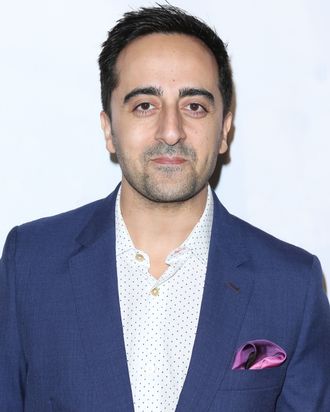
This week, we observe the 17th anniversary of the tragedy of 9/11, as well as the beginning of a new fall TV season. As unconnected as those are for most Americans, they are totally intertwined for me, and many other MENA (Middle Eastern and North African) actors. I moved to Hollywood a few months after 9/11. One of my first TV roles was on a TV pilot called Homeland Security, where I actually played one of the 9/11 hijackers in flight school. I had a handful of lines, including, ÔÇ£Is okay, I donÔÇÖt need to land.ÔÇØ At the time, I was happy to be working, and I didnÔÇÖt mind playing such a one-dimensional character because I hoped and expected I would eventually play more complex non-terrorist roles. But in the last 17 years, nearly every MENA role IÔÇÖve played or auditioned for was in some way informed by 9/11.
ThatÔÇÖs not to say IÔÇÖve only played terrorists. Far from it ÔÇö most of the roles IÔÇÖve played had nothing to do with terrorism. But they also had literally nothing to do with being MENA. They had traditionally white names like Richard or Mitchell, and no indication of their parents being immigrants, like mine, or of them facing any kind of anti-MENA racism, like I do.
Looking around and talking to fellow MENA actors in audition rooms, itÔÇÖs always felt like we all were only playing two types of roles: guys named Mohammed in terrorist story lines, or guys named Richard in non-terrorist story lines.
This felt true, but I had no way to prove it beyond my own life experiences. But a recent study, ÔÇ£Terrorists and Tyrants,ÔÇØ shows that my experience is indeed universal to MENA performers in Hollywood. Presented by the MENA Arts Advocacy Coalition (MAAC), the study shows that MENA performers are underrepresented on network, cable, and streaming TV. Specifically, MENAs are 3 percent of the U.S. population but only one percent of series regulars. And when we do get cast, our ethnicity is either erased, playing characters that are not identifiably MENA; or, as is more often the case, we play terrorists, soldiers, special agents, and tyrants ÔÇö a whopping 78 percent of the time.
Seventy-eight percent is absolutely staggering to me. While it makes me sad to read it in print, it is reassuring to know that I havenÔÇÖt been imagining it. And now that we have data to back it up, it gives us the opportunity to change things.
For me personally, it would mean a lot to be able to play a character named Mohammed, whose parents are from Iran, but who doesnÔÇÖt help (or prevent) the Iranian government procure uranium for a nuclear weapon. IÔÇÖd love to just play an Iranian-American who is tormented by, say, a Mind Flayer from the Upside Down, or an Iranian-American who has to make meth to pay for his cancer treatment.
But my desire to see more MENA actors working, and more MENA characters not connected to geopolitics, goes way beyond what it would mean for me personally. Seventy-five percent of white Americans donÔÇÖt have any nonwhite friends, and I suspect that number would be much higher if we asked what percentage of white Americans have any MENA friends. So for better or for worse, the only way most Americans know MENAs is through the news media and the scripted media. Given that the news media focuses disproportionately on MENA terrorists compared to their white counterparts, and we know the scripted media disproportionately depicts MENAs as involved in terrorism, is it any wonder that most white Americans voted for a man who campaigned on deporting people from MENA countries? Is it any wonder that hate crimes against Muslims and Arabs in America are higher than theyÔÇÖve ever been?
If depictions of MENAs were more diverse and more accurate, perhaps there would be less fuel on the fire of bigotry and hate in this country. Perhaps, the same way Will and Grace and Modern Family helped many Americans see that gay people are no different than anyone else, more depictions of real MENAs will help Americans see how much we all have in common.
Know that MENAs are more than terrorists, and more than terrorist-fighters. Most of us go about our daily lives just like everyone else. We are doctors, lawyers, and baristas; we are straight, gay, and trans; we are Muslim, Christian, Jewish, and atheist; we like music, sports, and eating out. What you see on TV is an extremely skewed picture, and every TV and movie viewer should take these study results to heart.

